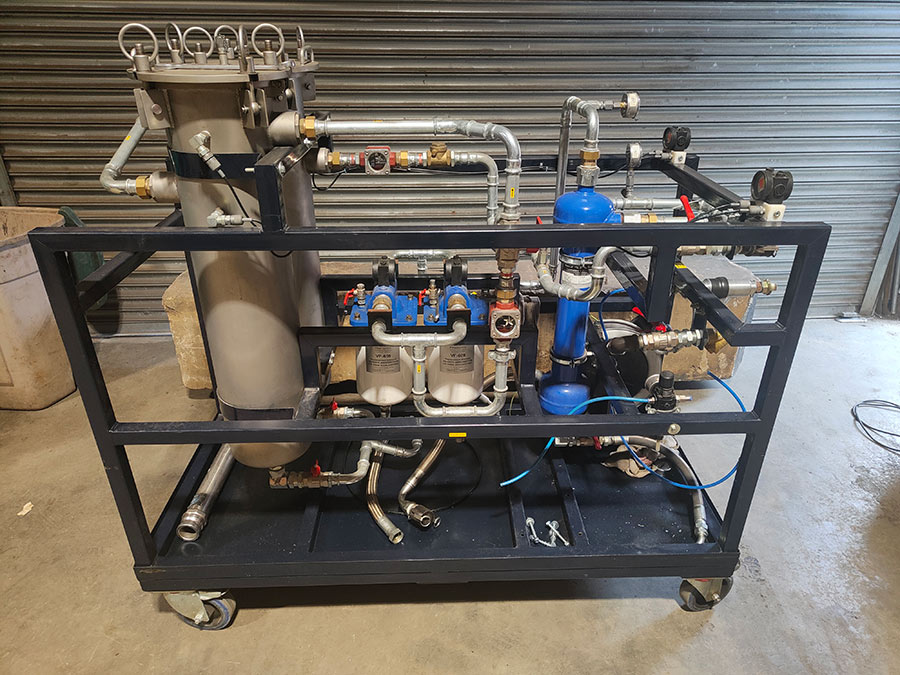When it comes down to optimizing the efficiency and performance, the fuel quality is a key factor. Diesel fuel is prone to contamination over time with sediment, water and the growth of microbial. This can negatively affect engine performance, and can result in expensive repairs. The process of polishing fuel is a way to avoid fuel contamination and to ensure smooth operation of engines.

Polishing of fuel (also known as diesel polishing) is the method of removing contaminants from diesel fuel. Professionals use advanced equipment and techniques to bring the fuel back to its best state. Polishing your fuel can improve the efficiency of your engine and reduces maintenance expenses by eliminating harmful substances.
Fuel polishing comes in a variety of services that meet the different requirements of businesses that rely on diesel. These services use highly-trained technicians who are specialists in fuel systems and are aware of the complexities associated with contamination of fuel. They can spot fuel problems by using their special equipment and deep knowledge.
The process of polishing fuel has its primary objective the removal of water, sediments microorganisms, sludge and sludge from diesel fuel. The accumulation of water inside fuel tanks is often caused through leaks or condensation that can cause corrosion, fuel degrading and the development and spreading of mold and bacteria. Sludge and sediment, on the other hand can result from impurities within the fuel or the degradation of fuel components as they age. The contaminants can block filters and injectors as as other important components. This could lead to an impairment in the performance of engines or even a failure.
Diesel polishing typically involves a multi-step process. Analyzing and sampling of the fuel is the initial step to determine the level of contamination. Following the analysis, technicians employ filtering systems to remove impurities and contaminants from the fuel. These systems employ various filters and technologies to efficiently capture and eliminate contaminants from fuel.
Regular fuel polishing offers several key benefits. In the first place, it increases the quality of fuel, which assures that engines get clean, consistent fuel that will allow the fuel to burn effectively. Additionally, it improves fuel efficiency and performance. This is a result of reduced emissions as well as cost savings. The second benefit of polishing fuel is that it can to reduce the possibility of engine failure and damage due to the contamination of the fuel. Removal of harmful substances assists in maintaining engine integrity, extending the life of engines and minimizing repair costs.
Diesel polishing is a regular procedure that provides many benefits to ensure the quality of fuel. First, it assists in remove sediment, water and microbial contaminants that hinder the performance of engines. By removing impurities using the process of diesel polishing the fuel’s quality is greatly improved. This will in turn increase efficiency of combustion, which results in enhanced fuel economy and reduced emissions. Regularly polishing your diesel can also help prevent the fuel filter from becoming blocked, injections, and many other crucial components. This reduces the chance of engine damage or costly repairs. Additionally, by reducing the accumulation of corrosion and sludge regularly, regular polishing helps ensure the durability of storage systems. Overall, the benefits of regular polishing of diesel fuel, also known as diesel polishing, are enhanced engine performance, cost savings, and increased equipment reliability.
Fuel polishing is also adjusted to meet the specific requirements of different industries and applications. Fuel polishing can be applied to a range of applications, from boats and backup engines, to construction machinery and transport fleets. This is particularly crucial in industries that rely on an uninterrupted and reliable power supply as well as those who operate in harsh or remote environments.
Fuel polishing, in summary is a critical procedure to ensure the quality and cleanliness of diesel fuel. By removing impurities and contaminants this improves the efficiency of engines and reduces the cost of maintenance and extends the life span of the equipment. When investing in professional polishing of fuel, businesses can protect their operations, enhance performance and lessen the risk caused by fuel contamination. The process of polishing fuel is a potent tool that is able to enhance the performance of your diesel fuel.
